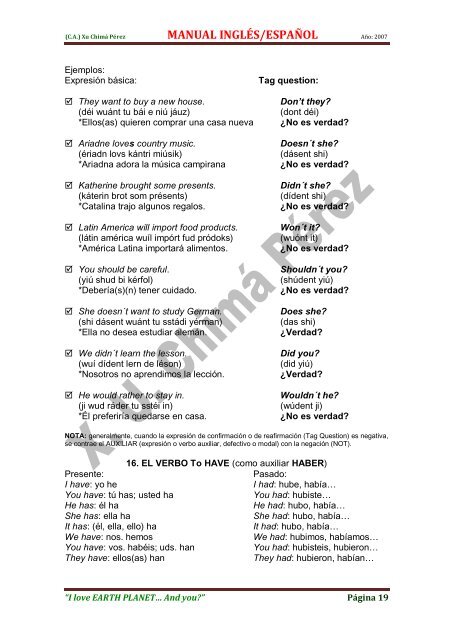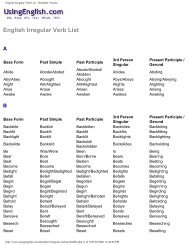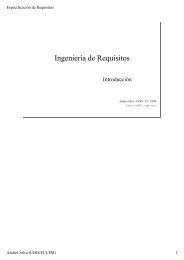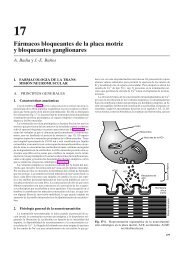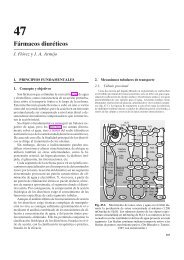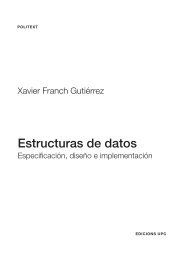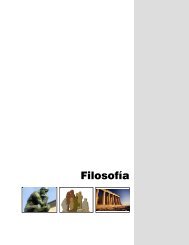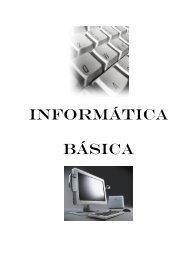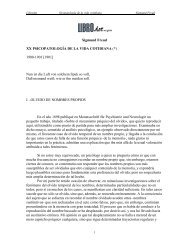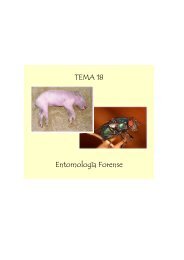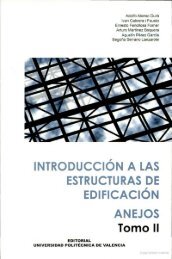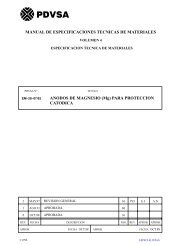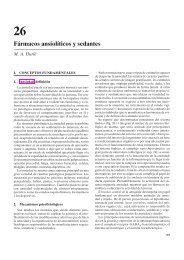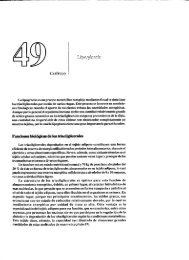MANUAL INGLÉS/ESPAñol - sisman
MANUAL INGLÉS/ESPAñol - sisman
MANUAL INGLÉS/ESPAñol - sisman
Create successful ePaper yourself
Turn your PDF publications into a flip-book with our unique Google optimized e-Paper software.
(C.A.) Xu Chimá Pérez <strong>MANUAL</strong> <strong>INGLÉS</strong>/ESPAÑOL Año: 2007<br />
Ejemplos:<br />
Expresión básica: Tag question:<br />
They want to buy a new house. Don’t they?<br />
(déi wuánt tu bái e niú jáuz) (dont déi)<br />
*Ellos(as) quieren comprar una casa nueva ¿No es verdad?<br />
Ariadne loves country music. Doesn´t she?<br />
(ériadn lovs kántri miúsik) (dásent shi)<br />
*Ariadna adora la música campirana ¿No es verdad?<br />
Katherine brought some presents. Didn´t she?<br />
(káterin brot som présents) (dídent shi)<br />
*Catalina trajo algunos regalos. ¿No es verdad?<br />
Latin America will import food products. Won´t it?<br />
(látin américa wuíl impórt fud pródoks) (wuónt it)<br />
*América Latina importará alimentos. ¿No es verdad?<br />
You should be careful. Shouldn´t you?<br />
(yiú shud bi kérfol) (shúdent yiú)<br />
*Debería(s)(n) tener cuidado. ¿No es verdad?<br />
She doesn´t want to study German. Does she?<br />
(shi dásent wuánt tu sstádi yérman) (das shi)<br />
*Ella no desea estudiar alemán. ¿Verdad?<br />
We didn´t learn the lesson. Did you?<br />
(wuí dídent lern de léson) (did yiú)<br />
*Nosotros no aprendimos la lección. ¿Verdad?<br />
He would rather to stay in. Wouldn´t he?<br />
(ji wud ráder tu sstéi in) (wúdent ji)<br />
*Él preferiría quedarse en casa. ¿No es verdad?<br />
NOTA: generalmente, cuando la expresión de confirmación o de reafirmación (Tag Question) es negativa,<br />
se contrae el AUXILIAR (expresión o verbo auxiliar, defectivo o modal) con la negación (NOT).<br />
16. EL VERBO To HAVE (como auxiliar HABER)<br />
Presente: Pasado:<br />
I have: yo he I had: hube, había…<br />
You have: tú has; usted ha You had: hubiste…<br />
He has: él ha He had: hubo, había…<br />
She has: ella ha She had: hubo, había…<br />
It has: (él, ella, ello) ha It had: hubo, había…<br />
We have: nos. hemos We had: hubimos, habíamos…<br />
You have: vos. habéis; uds. han You had: hubisteis, hubieron…<br />
They have: ellos(as) han They had: hubieron, habían…<br />
“I love EARTH PLANET… And you?” Página 19


